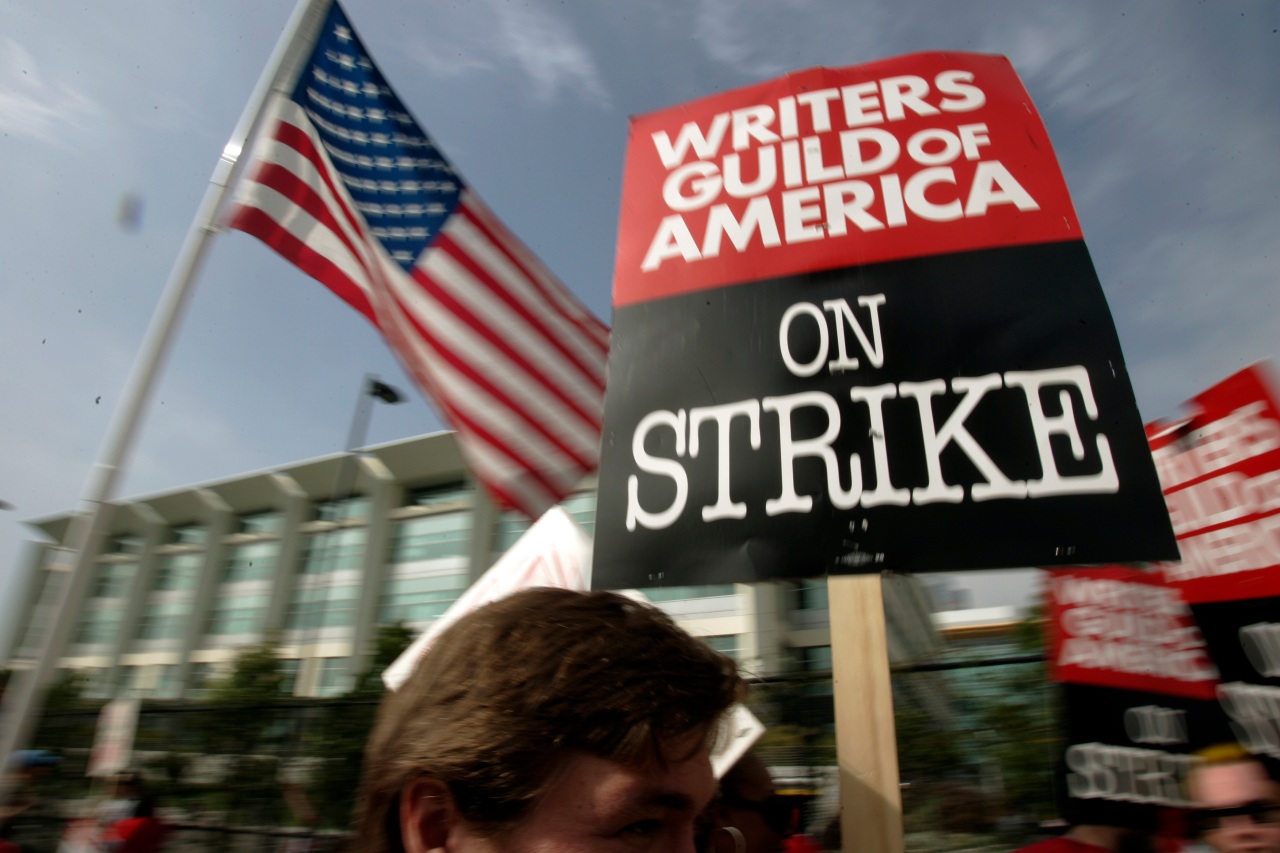
Members of the Writers Guild of America (WGA) are on strike after they could not reach a deal with the Alliance of Motion Picture and Television Producers (AMPTP), which consists of production companies and Hollywood studios.
The writers say that current management proposals do nothing to address changes in the work environment that make economic and working conditions far worse for writers.
Following Monday night’s decision to strike, the WGA issued a statement.
“‘The companies’ behavior has created a gig economy inside a union workforce, and their immovable stance in this negotiation has betrayed a commitment to further devaluing the profession of writing,” the statement read.
It also gets worse.
KTLA 5’s Sam Rubin gave some insight as to how some writers are treated.
“Imagine working on a show like ‘Saturday Night Live’ and being asked to come in to help punch up the show, but being asked to come in for just one day,” Sam explained.
The WGA touched on this in their statement.
“From their refusal to guarantee any level of weekly employment in episodic television, to the creation of a ‘day rate’ in comedy variety, to their stonewalling on free work for screenwriters and on AI for all writers, they have closed the door on their labor force and opened the door to writing as an entirely freelance profession. No such deal could ever be contemplated by this membership,” the union said.
So, where are we now?
The sides are inching closer to increasing pay rates, but there’s still a significant gap.
WGA’s proposal would gain writers about $429 million per year. Meanwhile, AMPTP’s offer is approximately $86 million per year. 48% of which is from the minimums increase, Deadline reported.
“Producers said last night they were willing to actually add even more to the pot, but it’s not just money that the writers are seeking,” Sam said.
So, with a significant standoff involving what the WGA says is the future of professional writing- how long could this go?
When the strike occurred in 2007-2008, it lasted 100 days. It’s unclear if this one will last just as long or longer.
According to Puck News, there are three scenarios.
The first would involve what may happen with other powerful unions.
“The July Scenario: If both the DGA and SAG-AFTRA make deals at the end of June, the writers will find themselves on a lonely island and will likely settle,” the publication reported.
Then there’s the “September Scenario.”
“The Fall broadcast schedule is impacted, the movie pipeline begins to suffer, the Emmys are threatened, and the companies feel they have made their cost cuts over the summer and can justify giving a little to make a deal,” Puck said.
Finally, there’s the possibility that this strike ends up being much longer. That’s been dubbed “The December Scenario.”
“Everyone, including the streamers, begins to run out of scripted programs, the substitutes and unscripted fare aren’t generating equivalent viewership, and people start canceling subscriptions,” read the report. “Both sides panic, get together, and make a deal.”
The first to take a hit is shows on the late-night talk circuit.
Prior to the announcement, Seth Myers spoke about the looming strike to his audience.
“No one is entitled to a job in show business, but for those people who have a job in show business, they are entitled to fair compensation,” he said. “They are entitled to make a living, I think it’s a very reasonable demand that is being set out by the Guild and I support those demands. But I also believe that everybody at that table right now be it from the writer side or the studio side knows that the future of this business is dependent on storytellers.”
Now his show, as well as “Jimmy Kimmel Live!” and “The Late Show with Stephen Colbert” are all on ice until the strike is resolved.
Some writers and big names took to social media to explain why this move by writers is a big one.
“Watch this #WGA strike carefully,” tweeted Justin Bateman. “Understand that our fight is the same fight that is coming to your professional sector next: it’s the devaluing of human effort, skill, and talent in favor of automation and profits. @WGAWest @WGAEast.”
Ashley Nicole Black of “A Black Lady Sketch Show” revealed why this was necessary.
“Wow. This is scary. But a future where we accept what the companies are trying to do— low-paid, freelancer writing gigs with no job security— is much scarier,” tweeted Black. “You can’t make good art that way. And writers generate far too much profit for them to accept it. So, I’m on strike!”
Suggest a Correction
